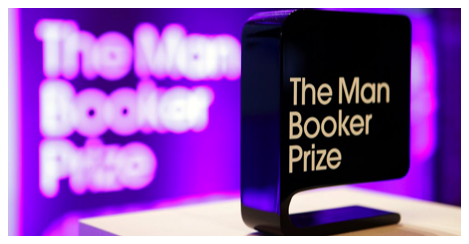
The Pros and Cons of Literary Prizes
For the whole month of August, I was buried in the Man Booker longlist because, for the second year in a row, some friends and I committed to reading the longlist together and coming up with our own shortlist. I’ve always found prize lists to be fun to read from and talk about, even when I don’t love every book on them. But this year’s Booker list really didn’t suit me. The books were dark and largely either plotless or overplotted. There was too much experimentation and not enough storytelling.
The whole experience prompted an internal debate on the pros and cons of literary prizes. I present that debate to you here.
Pro: Literary prizes are valuable because they put good books in the spotlight.
Con: But the chosen books are only good in the eyes of this set of judges. Others might disagree.
Pro: True, but the chosen books usually have some merit, even if they don’t suit everyone.
Con: Maybe, but why single out these books over others?
Pro: Because readers have only so much time. A prize list can help them winnow down their choices.
Con: In that case, prize lists should really just be treated as lists of books worth checking out. And there are tons of those out there that don’t have the baggage of a prize.
Pro: Well, prizes also have actual value to the authors in that many of them include money, and they can help build a struggling writer’s career.
Con: That’s great! But are the winning authors the ones who need the money? Or do these prizes just prop up authors who are already successful? Wouldn’t it be better to transparently treat them as support for up-and-coming writers?
Pro: Would people be as interested in such a list, though? Including major names gives a prize list credibility. And chances are, some of those established authors aren’t wildly wealthy and will benefit from the cash prize, as well as the boost it gives their career.
Con: Choosing good books is probably the best way to bring credibility to a prize. But these prizes seem to reward books that are difficult over those that are enjoyable.
Pro: Difficult can be good, though! And if it’s difficult because it’s doing something new and different, that seems like something worth honoring.
Con: Sure, but difficult for the sake of difficult doesn’t seem worth much to me.
Pro: But such books prompt debate and discussion, as do the lists as a whole. They get people talking.
Con: Talking, or complaining?
Pro: Both! Complaining is still conversation, and if the complainer can point out better books than those on the list, that’s a good thing.
Con: So here’s where I complain about LaRose by Louise Erdrich not being on the Booker Prize longlist this year. Read that instead of anything on the longlist.
Pro: See! Prize lists give readers a chance to talk about other books, too! And be honest, haven’t you discovered great authors and books because of prize lists?
Con: Yeah, I guess. I did finally read Sarah Waters when The Little Stranger was shortlisted for the 2009 Booker. That was quite a list, too, with Colm Toibin’s Brooklyn on the longlist, J.M. Coetzee’s Summertime and A.S. Byatt’s The Children’s Book on the shortlist, and of course, the winner, Hilary Mantel’s Wolf Hall. Byatt was the only one of those authors I’d read before, and it was the Booker list that got me to try the others.
Pro: That’s one of the great things about Prize lists. They give readers a nudge to try something they might not have gotten around to just yet.
Con: But recommendations from friends, librarians, booksellers, and general reviews do the same thing. I would have read Waters eventually, I’m sure.
Pro: That’s probably true, but reading books on a prize list when the competition is happening is its own special kind of fun. We get to root for and against the books we care about, just like in sports. There are often lots of others reading books on the same list, which brings even more opportunities for discussion and debate.
Con: As long as we don’t pretend that the books on a prize list are the best books of the year.
Pro: There we are in agreement. These are lists of discussion-worthy books, not the best books.








